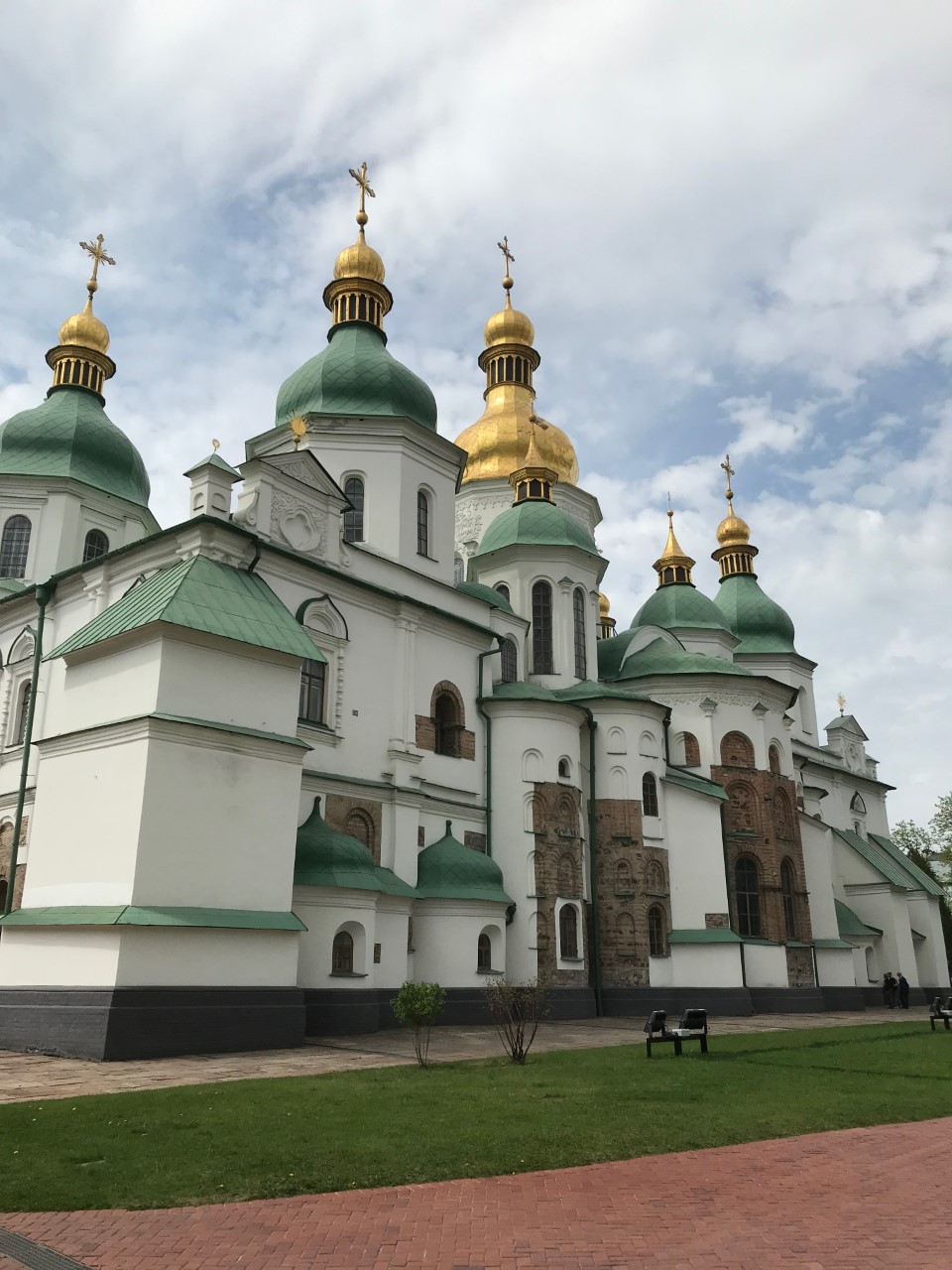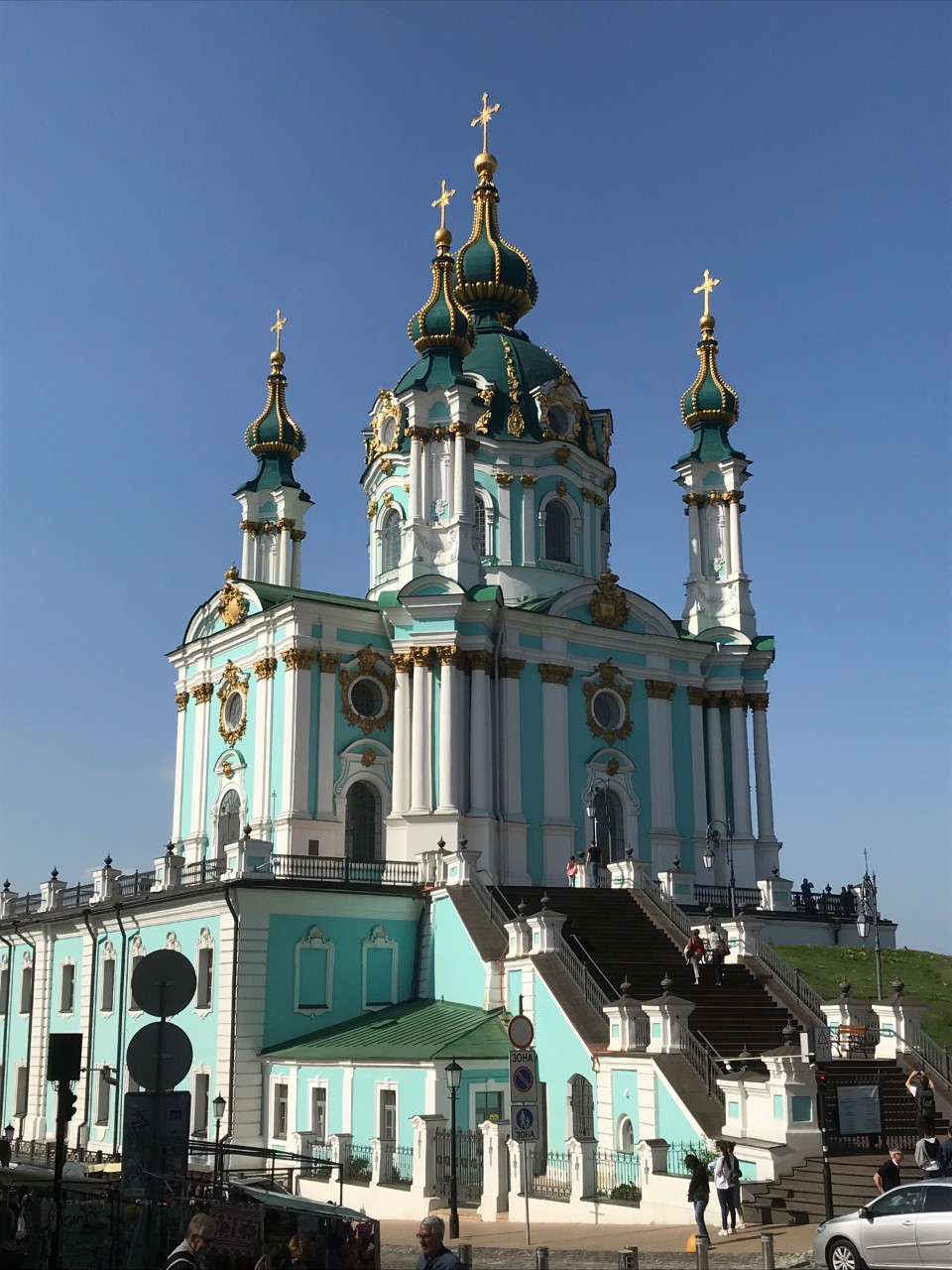A Letter from Ellen and Al Smith, serving in Germany, Belarus and Russia
April 2020
Write to Al Smith
Write to Ellen Smith
Individuals: Give online to E200406 for Alan and Ellen Smith’s sending and support
Congregations: Give to D507149 for Alan and Ellen Smith’s sending and support
Churches are asked to send donations through your congregation’s normal receiving site (this is usually your presbytery)
I recently traveled to Ukraine with Luciano Kovacs, the PC(USA) Area Coordinator for Europe and the Middle East. We arrived in Kiev on 19 February 2020. As we drove to our first meeting, we passed a march. I asked our driver what it was about. He responded that there had been many demonstrations lately, but that this demonstration was in memory of those who died on Maidan in 2014.
The political situation in Ukraine is complicated. In November 2004, Viktor Yanukovich defeated Viktor Yushenko in a presidential election that was seen as rigged, marred by voter intimidation and corruption. There were widespread protests on Maidan Square. These protests and their aftermath became known as the “Orange Revolution.” As a result of the protests, a second election was held in December 2004. The results of the second election removed Yanukovich and placed Yushenko in power. Yanukovich returned to power in 2010. In November 2013, he rejected an association agreement with the European Union in favor of closer ties with Russia. New demonstrations erupted on Maidan Square. These protests, known as “Euromaidan,” continued through 23 February. Protests turned violent on 18 February when the government started shooting at demonstrators. From 18-23 February, 130 people died. Yanukovich fled to Russia on 22 February 2014, fearing arrest. In the following months, Russia annexed the Crimean Peninsula. Russian-speaking separatists in the eastern Ukrainian regions of Donetsk and Luhansk, collectively referred to as Donbass, declared the foundation of the Donetsk Peoples Republic and the Luhansk Peoples Republic (DNR and LNR respectively). Widespread fighting broke out between Ukrainian government forces and forces loyal to the DNR and LNR, supported by Russian “volunteers.”
After six years, this war in Donbass continues, with no end in sight. There is also conflict between two competing Orthodox churches, conflict over language (Ukrainian, Russian and Hungarian), and conflict surrounding the issues of internally displaced peoples (IDPs). It’s complicated. It’s painful.
Over the last six years, there have been 3 small group visits to Ukraine to explore the conflict and efforts in peacemaking. As a result of these visits, we are now connected with some extraordinary people in Ukraine. Most are engaged in seeking new directions for Ukraine and the healing of their country.The Community of St’Egidio, in Kiev, has opened a new student center, with a focus on engaging youth in social ministry and peacemaking. The youth appear to be more reachable than adults. The center is near one of the universities that educate students from all over the world. The student center is a venue for breaking down barriers and confronting racism by bringing people together. It also engages students by involving them in feeding the homeless. In addition to the work with university students, the center has established two peacemaking programs. One engages teenagers, while the other involves children ages six through ten. Young adults ages 25-35 are the most responsive. They are out on their own, adjusting to adult life and searching for meaning and community.
Alla Soroka served as an International Peacemaker, itinerating among Presbyterian churches in the fall of 2018. This Child Here began as a ministry to street children but has expanded to minister to the needs of orphans. This work with children has developed further and now includes a program that trains teens to mentor orphans, as well as a program that works with foster parents. When the war broke out in Donbass in 2014, large numbers of Internally Displaced Peoples fled to Odessa. In response, This Child Here began focusing on the needs of this extremely stressed population. This Child Here has also begun hosting summer camps for families within the Gray Zone, a 30 km buffer zone around Donbas, which was shelled throughout the war. These summer camps have been a respite for these families. This Child Here has now identified another group that needs help. This group consists of the teachers who work in this “war” zone, particularly teachers in the schools of Avdeevka, a town 10 km from Donetsk, which was severely shelled in 2017. These teachers work under high stress, and by reaching them, This Child Here can impact the entire community.
The work of This Child Here is focused on establishing peacemaking initiatives and alternatives to violence. Every year Alla teaches a special course on peacemaking, training teenagers to be facilitators. They are now looking at hosting a seminar in a neutral country for a group of teenage Ukrainian facilitators together with teenagers from a mentoring program in Russia. This is a daring project. Russians are afraid to visit Ukraine because propaganda tells them that they will not be safe. Ukrainians are afraid to go to Russia because that would mean going into enemy territory, and they are afraid of the response from their neighbors when they return. But youth are less influenced by propaganda. They are more open to one another and more natural peacemakers. As we talked, Alla reminded me of Samantha Smith, the schoolgirl from Maine, who wrote to Yuri Andropov and then visited the Soviet Union in the 1980s.
Ukraine is in a hard place, and people are angry, tired of the war, tired of economic hardships, tired of internal conflicts. The bitterness is understandable but does not lend itself to hope. I am encouraged by the peacemakers whose efforts to reach the next generation seeks to disrupt the pattern of polarization that has infected the globe.
As always, we thank you for the time you take to read our letters. We are grateful for all the ways you support us – your prayers, your notes, your visits, and, of course, your financial support. Please pray for Ukraine and Russia. Please pray for the peacemakers everywhere.
Love and blessings,
Ellen
![]() You may freely reuse and distribute this article in its entirety for non-commercial purposes in any medium. Please include author attribution, photography credits, and a link to the original article. This work is licensed under a Creative Commons Attribution-NonCommercial-NoDeratives 4.0 International License.
You may freely reuse and distribute this article in its entirety for non-commercial purposes in any medium. Please include author attribution, photography credits, and a link to the original article. This work is licensed under a Creative Commons Attribution-NonCommercial-NoDeratives 4.0 International License.

